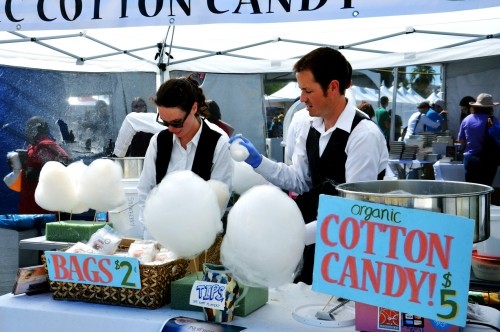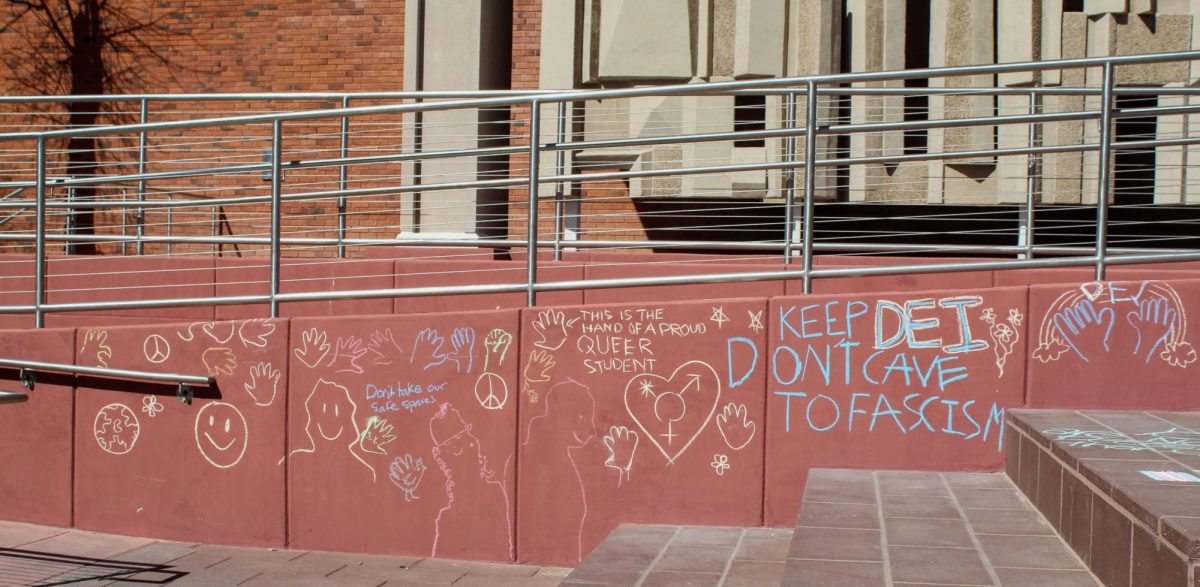Money goes in, literacy comes out during the Tucson Festival of Books.
The festival itself costs $500,000 to put on, which pays for the tents, authors that are accommodated with hotels or airline tickets, banners, all of the tables and chairs and marketing, but that investment pays off several times over, according to organizers and economic studies.
This money is raised through 150 sponsors that either donate or give in-kind contributions. For example, all of the printing for the event is done in-kind. Also, well over 1,000 people have contributed with Friend of the Festival memberships.
Friend of the Festival memberships are contributions of up to $999 that give benefits in return for donations that keep the festival free. People who donate $1,000 and above are considered sponsors. The main sponsors include the Arizona Daily Star and the University of Arizona at the highest level, the Tucson Medical Center, the Pima County Public Library and The Stocker Foundation, among many others. Some sponsors also have booths at the festival.
For the authors, the festival is a great opportunity to speak to readers and sell their books.
RELATED: More than 100,000 people from around the nation attend Tucson Festival of Books
“The UA Bookstore is a really great partner. They sell all of the books for the authors that are attending,” Executive Director of the Tucson Festival of Books Marcy Euler said. “So it’s a really great experience for the authors because the more books they sell the higher on the New York Times best-selling list they will go.”
However, the goal is not only to give authors a chance to connect to readers and make sales but also to raise money for literary groups in the Southern Arizona community.
“It costs a lot of money to put this on, but our goal is when we’re done we give back to improve literacy,” Euler said. “We’ve given $1.45 million away in eight years. When it costs half a million dollars to put on the event, to be able to have that kind of extra to improve literacy is pretty substantial.”
To help improve literacy, the festival money is donated to non-profit programs such as Literacy Connects, Reading Seed and University of Arizona Literacy Outreach Programs. Also, it provides funding for 1,000 students to take a field trip to the festival. Extensive outreach, including author visits, is done in the weeks leading up to the festival, which encourages students to participate in it. Lastly, the festival has donated over 48,000 books to children since 2009.

Literacy isn’t the only thing that’s affected, though. About 135,000 people participate in the festival, making this the third largest book festival in the country behind the Los Angeles Times Festival of Books and the Library of Congress National Book Festival, which are second and first, respectively. Those people coming into the city of Tucson generate an estimated 3 to 4 million-dollar impact in two days, based on a study done by the UA Eller College of Management in 2014.
“Since we don’t charge anything for people to come … we don’t have any ability to know exactly how many people participate,” Euler said. “But estimates are 135,000 came last year, and of that we believe about 30,000 people were from out of market [four plus hours from Tucson]. It included about seven foreign countries and almost every state in the union.”
The money comes from hotels, souvenir purchases, rental cars and meals.
“Because we are the third largest literacy festival in the country, we attract some of the biggest names in the industry,” Euler said. “We have publishers that support us, and we have people who want to come back year after year because it has such a reputation of being incredibly friendly to those who come to visit.”
Through the prestige that a top book festival brings, an endless positive cycle to constantly give back to authors and literacy groups continues to promote reading and support the community year after year.
Follow Rocky Baier on Twitter.









